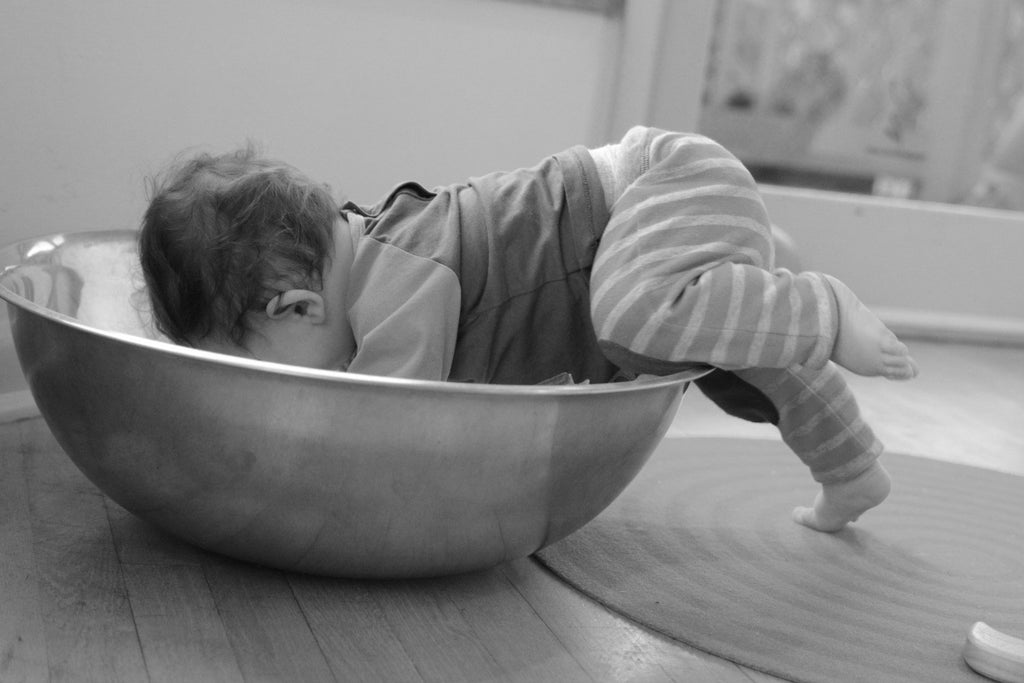
Through her years of research, Dr. Pikler concluded that supplying basic care to satisfy a child’s biological needs wasn’t enough. A baby needs more than that;
he wants to know that he matters.
-
Because this young baby cannot speak, he may cry to catch the adult’s attention hoping that she interprets these cries as an invitation to slow down, to engage.
-
Most of the time, an adult is not rough in her manner of care; she simply fails to read any cues emanating from his tense body. Yet something is happening inside this baby’s brain. He is forming an image of the world.
-
He is creating synapses; he is adapting to this care, or lack of, and deducing that the world is a place where his emotional needs do or do not matter.
And he grows according to his experience. -
What if the child’s emotional needs were taken into account and he was embraced as an active participant during all care situations and not just a passive recipient?
-
Can we support our baby’s emotional needs by fostering a sense of security?
Dr. Pikler suggests that every time an adult has an interaction with a child, she has the opportunity to speak to him, to address him, and to let him know that he matters; that she is there for him, that she is present, available, and accepting of him. She observed that the adult’s gestures are imperative in creating a dialogue between her and the baby. Her voice is addressed to the infant, and she talks directly to him, not over him. There are questions, and answers. Her patient and attentive hands are asking: “Are you ready for me? Can I pick you up now?” And the child responds. His body is relaxed, and the tension dissipates. There is a moment of communion between the two, and both are open and receptive to each other.
The infant is learning to cooperate, and the adult sees his competence. This togetherness allows the child to accept the world as a trusting place. There is a connection between the adult and the child. It is likely that because both are enjoying the process, they will be yearning for their next encounter: the next bath, the next diaper change. There will be more than basic care being provided, and your baby’s emotional needs will be fueled.
Elsa Chahin
RIE® Associate, Pikler® Trainer and President of Pikler/Loczy Fund USA
Pikler.org
"We help a child face the separation involved in going to sleep or going to school by satisfying his need for closeness. Thus the story of maturation is one of paradox: dependence and attachment foster independence and genuine separation."

